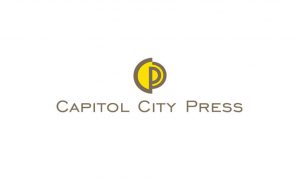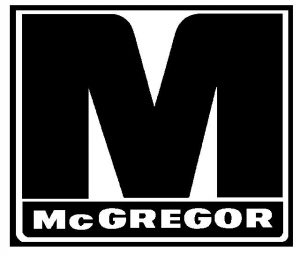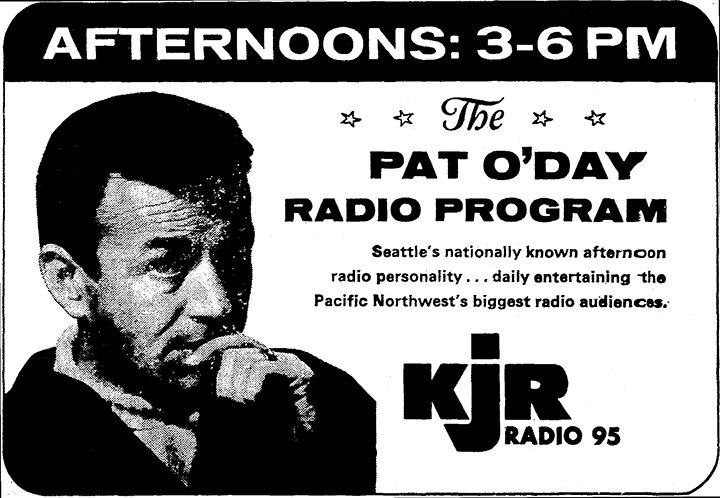
New exhibit features Pat O’Day, legendary Seattle DJ and concert promoter
A profile of Pat O’Day, the legendary Seattle disc jockey and concert promoter, is the latest chapter in Legacy Washington’s overview of 1968 “The Year that Rocked Washington.”
Change was in the air. Everywhere. It was the year when Vietnam, civil rights, women’s liberation, and conservation coalesced — and a year when tragedy led the 6 o’clock news with numbing regularity.
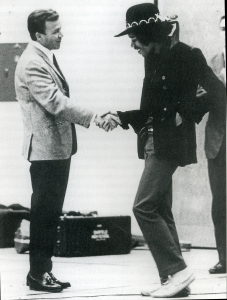
The Pat O’Day story opens on February 13, 1968, the day Jimi Hendrix returned to Garfield High School, his alma mater, for the first time since his emergence as a rock star. Jimi’s song “Spanish Castle Magic” was an homage to O’Day’s prime concert venue in the 1960s—an old roadhouse with faux turrets midway between Seattle and Tacoma.
The Garfield pep assembly, unfortunately, occurred on the morning after a sold-out homecoming concert at the Seattle Center Arena. Jimi had partied hard most of the night.
“And when it came time to talk to a bunch of teenagers in the gym at his old school he was absolutely petrified,” O’Day remembers. “It was really awkward. The Garfield student body was then predominantly black kids from the Central District, but Jimi’s music wasn’t exactly Motown. A lot of the kids didn’t really know who he was.”
O’Day grabbed the microphone. “Standing before you today is a man who may soon surpass the Beatles in popularity!” he declared. Most of the kids applauded and cheered the idea a black musician from their school could displace an all-white British band.
When O’Day asked if anyone wanted to ask Jimi a question, a cheerleader piped up: “Mr. Hendrix, how do you write a song?”
Jimi said he always liked to hear the school bell.
“Right now, I have a plane to catch, so I’m going to say goodbye, go out the door, get into my limousine, and go to the airport. And when I get out the door, the assembly will be over, and the bell will ring. And when I hear that bell ring, I’ll be able to write a song. Thank you very much.”
He waved goodbye with a sheepish smile and walked out the door without receiving an honorary diploma. Jimi had left the building but not the stage.
Seven months later, the Jimi Hendrix Experience returned to Seattle in unconditional triumph. Electric Ladyland, their new double album, rocketed to No. 1 on the Billboard charts as Election Day approached. Hendrix’s virtuoso version of Bob Dylan’s “All Along the Watchtower,” a breakout single from the album, struck millions as an anthem for a year pockmarked by tragedy — the assassinations of MLK and Robert Kennedy, riots, and massive anti-war marches. There was “too much confusion” and “no relief,” Jimi lamented.
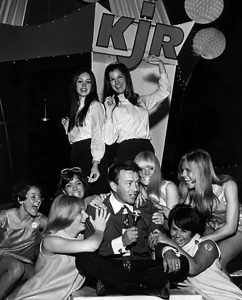 By 1970, Hendrix was a superstar. “Bridge over Troubled Water,” fittingly, topped the charts as President Nixon widened the war and the credibility gap became a crevasse. The Ohio National Guard killed four Kent State students during an anti-war protest, the Beatles broke up, and Jimi Hendrix was dead at 27 of an accidental barbiturate overdose.
By 1970, Hendrix was a superstar. “Bridge over Troubled Water,” fittingly, topped the charts as President Nixon widened the war and the credibility gap became a crevasse. The Ohio National Guard killed four Kent State students during an anti-war protest, the Beatles broke up, and Jimi Hendrix was dead at 27 of an accidental barbiturate overdose.
“Jimi’s dad asked me to fly to London and find out what was happening,” O’Day remembers. “We bought a coffin and brought Jimi home. It was one of the saddest duties of my life. What a tragedy. In my view, he’s the greatest rock guitarist ever—a transcendent genius.”
Hendrix’s biographer, Seattleite Charles R. Cross, seconds the motion:
“In rock music there has never been a guitarist as ground-breaking, original, and impactful as Jimi Hendrix. … In modern rock, he’s unmatched. And Pat O’Day’s impact on the Northwest music scene — booking shows, running KJR, and influencing generations of listeners—is also unparalleled. He’s the original Northwest rock legend.”
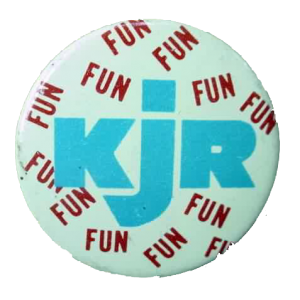 At 84 O’Day is alive and well, having survived alcoholism and a brain tumor. The jingle he wrote for his radio station is nostalgic catnip to hundreds of thousands of aging Puget Sound baby boomers. They can intone it on cue: “KJR Seattle, Channel 95!”
At 84 O’Day is alive and well, having survived alcoholism and a brain tumor. The jingle he wrote for his radio station is nostalgic catnip to hundreds of thousands of aging Puget Sound baby boomers. They can intone it on cue: “KJR Seattle, Channel 95!”
Here’s a recording of O’Day singing that fondly-remembered jingle:
Thank you to the sponsors of Legacy Washington’s 1968 Exhibit: Capitol City Press, The McGregor Company, University of Washington and Association of Washington Businesses.
